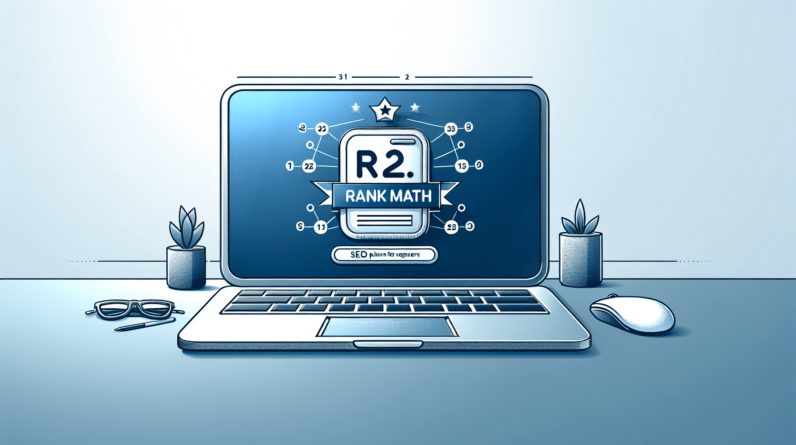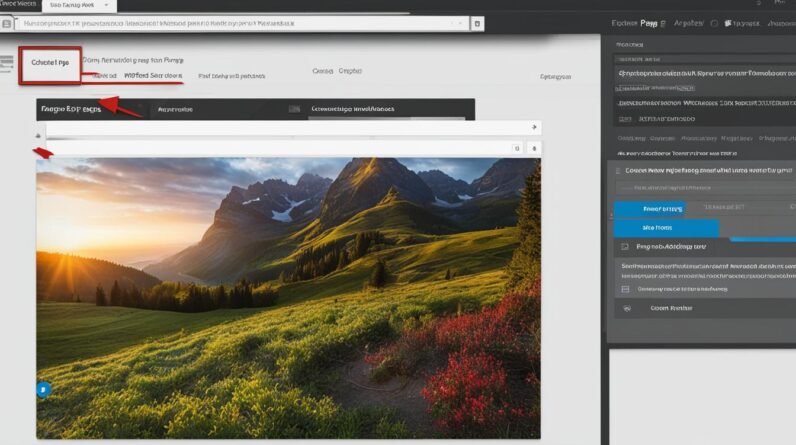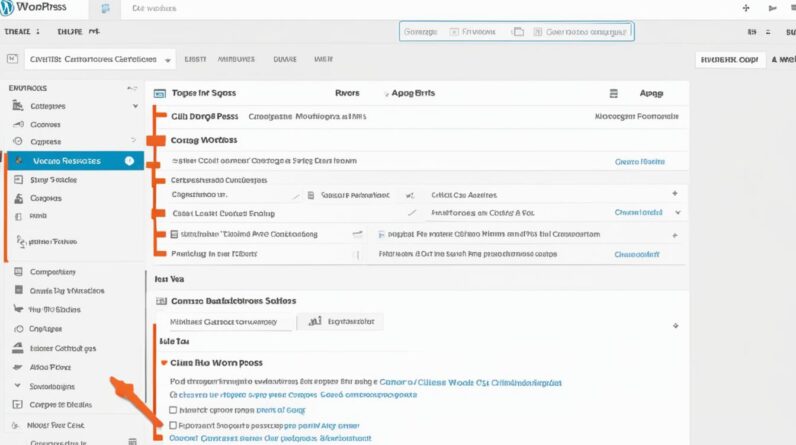Backing up your WordPress site is essential for ensuring its safety and security. Whether you encounter a site-breaking error or need to move your site to a new host, having a recent backup can save you time and minimize potential losses.
How to Make Money with YouTube
Create an empire of automated video websites for multiple streams of income
In this section, I’ll discuss the importance of regular backups and the different methods for backing up your WordPress site, including using your web host, plugins, and manual backups.
Key Takeaways:
- Regularly backing up your WordPress site is crucial for its safety and security.
- Methods for backing up a WordPress site include using your web host, plugins, and manual backups.
- Consider storing your backups on secure cloud storage services like Google Drive or Dropbox.
- Create a reliable backup strategy to protect your WordPress site from potential data loss.
- Make regular backups a priority to prevent time-consuming and costly issues.
When to Back Up Your WordPress Website
Backing up your WordPress website regularly is crucial for maintaining the safety and security of your site. But when should you actually perform these backups? The answer depends on the frequency of updates and changes to your website.
If your website is more static and doesn’t undergo frequent changes, a weekly backup may be sufficient. However, for dynamic websites such as blogs, forums, and online stores, it is recommended to perform backups on a daily basis or at least multiple times a week.
By having regular backups, you can ensure that you have the most up-to-date version of your website in case of any issues, errors, or updates. This will save you time and minimize potential losses in the event of a website failure or data loss.
Web hosting providers often offer automated daily backups as part of their services. This means that your website’s data will be backed up automatically without requiring any manual intervention from your side. However, it’s important to check with your hosting provider to confirm their backup frequency and retention period.
In addition to relying on your web host for backups, you can also use backup plugins or create manual backups when needed. Backup plugins provide more flexibility and control over the backup process, allowing you to schedule backups and choose where to store them. Manual backups, on the other hand, require you to manually export your website’s files and database, which can be done through your hosting control panel or using FTP.
| Backup Method | Frequency | Level of Control |
|---|---|---|
| Web Host Backups | Daily (check with your host) | Limited control over backup frequency and storage location |
| Backup Plugins | Customizable (daily, weekly, etc.) | Full control over backup schedule and storage location |
| Manual Backups | Depends on user | Full control over backup process, schedule, and storage location |
Ultimately, the decision of when to back up your WordPress website depends on your site’s activity and the level of risk you are willing to take. Remember, it’s always better to be safe than sorry when it comes to website backups.
How to Back Up a WordPress Site (4 Methods)
Backing up your WordPress site is crucial for safeguarding your data and ensuring quick recovery in case of any unforeseen events. In this section, I will walk you through four different methods to back up your WordPress site, giving you the flexibility to choose the one that suits your needs best.
1. Backup through Your Web Host
One of the easiest and most convenient methods of backing up your WordPress site is utilizing the backup functionality provided by your web host. Many reputable web hosting providers offer automated daily backups as part of their services. These backups can usually be accessed and restored through your hosting dashboard, ensuring that you always have a recent copy of your site readily available.
2. Backup Using Plugins
Another popular method is using backup plugins specifically designed for WordPress. These plugins provide a user-friendly interface and allow you to schedule automatic backups at regular intervals. Some well-known backup plugins include UpdraftPlus, BackupBuddy, and VaultPress. These plugins often offer additional features such as the ability to backup your site to remote storage locations like Google Drive or Dropbox, ensuring that your backups are securely stored offsite.
3. Manual Backup of Your WordPress Site
If you prefer a more hands-on approach, you can opt for manually backing up your WordPress site. This method involves manually downloading your site’s files and exporting your database using tools like FTP clients and phpMyAdmin. While it may require more time and effort, manual backups provide you with complete control over the backup process and allow you to store your backups in a location of your choice.
4. Backing Up Your WordPress Database with phpMyAdmin
When it comes to backing up your WordPress database, phpMyAdmin is a powerful tool that can simplify the process. phpMyAdmin allows you to access your site’s database directly from your hosting control panel. From there, you can select your database, choose the export option, and save a copy of your database to your local machine. This method is particularly useful if you only want to back up your database without the need to backup your site files.
By implementing one of these four methods, you can ensure that your WordPress site is backed up regularly and securely. Remember to choose a backup strategy that aligns with your site’s needs and to store your backups in a safe location, whether it’s on your web host’s server or a remote storage service. Don’t leave your WordPress site vulnerable to data loss – make backing up a priority!
Where to Store Your WordPress Backups
When it comes to storing your WordPress backups, it’s important to choose a secure and reliable solution. There are several backup storage options available, but one of the most popular choices is cloud storage. Cloud storage services provide a convenient and accessible way to store your backups offsite, ensuring that they are protected from any potential local hardware failures or disasters.
One of the leading cloud storage providers is Google Drive. With Google Drive, you can easily upload and store your WordPress backups in a secure and encrypted environment. Plus, you can access your backups from anywhere with an internet connection, making it a convenient option for remote access and disaster recovery.
Another well-known cloud storage service is Dropbox. With Dropbox, you can securely store and sync your WordPress backups across multiple devices. This makes it easy to access your backups whenever you need them and ensures that you always have an up-to-date copy of your site.
If you’re looking for additional storage options, Amazon S3 is another reliable choice. Amazon S3 offers scalable and highly durable storage for your WordPress backups. It provides advanced security features and allows you to customize your backup storage settings according to your specific needs.
Comparison of Cloud Storage Services for WordPress Backups
| Cloud Storage Service | Key Features |
|---|---|
| Google Drive | – Secure and encrypted storage – Easy access from anywhere – Integration with other Google services |
| Dropbox | – Secure and synchronized storage – Accessible across multiple devices – File versioning and recovery |
| Amazon S3 | – Scalable and durable storage – Advanced security features – Customizable backup settings |
Each cloud storage service has its own unique features and advantages, so it’s recommended to evaluate your specific needs and requirements before choosing the best option for your WordPress backups. By storing your backups in the cloud, you can ensure their safety and accessibility, giving you peace of mind knowing that your valuable website data is protected.
Conclusion
In summary, the importance of backing up your WordPress site cannot be overstated. By regularly creating backups, you are ensuring the safety and security of your website. Whether you encounter a site-breaking error, need to move your site to a new host, or face any other unforeseen circumstances, having a recent backup can save you time, money, and potential losses.
There are multiple methods available for backing up your WordPress site. You can utilize your web host’s backup services, take advantage of backup plugins, or even create manual backups when needed. Whichever method you choose, it is crucial to have a reliable backup strategy in place.
Remember to store your backups in secure locations, both online and offline, to guarantee their accessibility when required. Cloud storage services such as Google Drive, Dropbox, and Amazon S3 offer reliable storage options and easy access to your backups from anywhere with an internet connection.
Don’t neglect the backup process; make it a priority to protect your WordPress site. Regularly backup your site, choose a suitable storage solution, and rest easy knowing that your valuable data is safely stored and ready to be restored if needed.
FAQ
How often should I back up my WordPress site?
It is recommended to back up your WordPress site daily or at least weekly to ensure you have the most up-to-date version of your site.
Can my web hosting provider help with backups?
Yes, many web hosting providers offer automated daily backups as part of their services. These backups can be accessed and restored through your hosting dashboard.
How can I back up my WordPress site using plugins?
There are various backup plugins available for WordPress that allow you to schedule and automate backups. Some popular options include UpdraftPlus, BackupBuddy, and VaultPress.
Is it possible to create manual backups of my WordPress site?
Yes, you can create manual backups by exporting your WordPress database and saving a copy of your site files. This can be done using tools like phpMyAdmin to export the database and FTP to download the site files.
Where should I store my WordPress backups?
Cloud storage services like Google Drive, Dropbox, and Amazon S3 are popular options for storing WordPress backups. These services offer reliable storage and easy accessibility from anywhere with an internet connection.
How important is it to back up my WordPress site?
Backing up your WordPress site is crucial for ensuring its safety and security. Regular backups can save you time, money, and potentially prevent data loss in case of site issues or updates. It is a best practice to have a reliable backup strategy in place.






